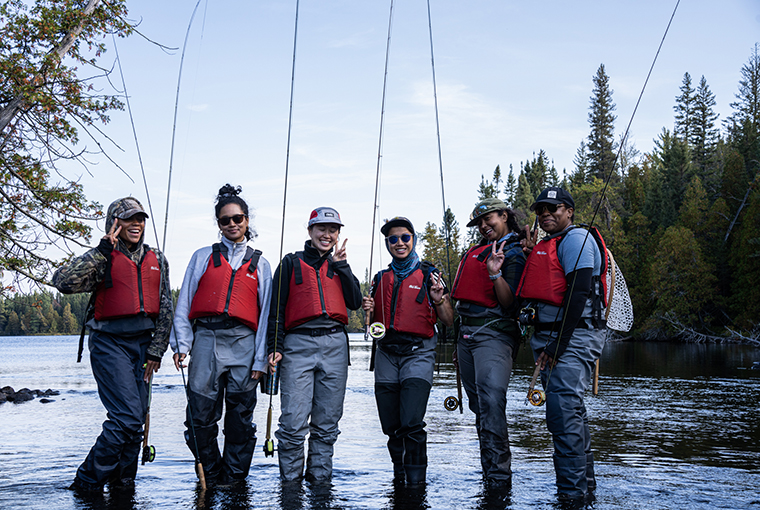
“Introducing myself is one of the hardest things,” Demeisha Dennis begins.
I can see why.
As a passionate fly angler and a lover of brook trout, community figure, mother, and member of the Algonquin Provincial Park Fisheries Advisory Council, Dennis is a busy lady. She’s also the founder of Brown Girl Outdoor World (BGOW): a community organization dedicated to creating “a space to connect women from Black, Indigenous, and Racialized communities to the outdoors in safe, meaningful ways,” Dennis writes. What began in 2018 as a conduit for connecting urban, BIPOC (Black, Indigenous, People of Colour) women to the outdoors has bloomed and grown into a rich, diverse collective and online community that is undoubtedly only beginning to gain traction.
Dennis was kind enough to take the time to catch up with us via email in this sequence of Q&As.
Her responses have been edited for length.
Urban angling on the fly
OOD: Why fly fishing?
DD: Fly fishing is a connection to nature. It is the activity that allows my mind to temporarily walk away from the stressors of everyday life, and step into a space where nothing but the action between the butt of my rod and whatever mimicked food source is at the end of the tippet matters. Fly fishing started as a way for me to disrupt the narrative of who’s seen as an angler and quickly grew into something I do for myself.
OOD: What’s your favourite fly pattern?
DD: Give me anything topwater so that I can see the moment a fish connects with that fly. Since I started fly fishing, I have been captivated by the simplicity and effectiveness of the Parachute Adams. Trout love it, maybe just as much as I do.
OOD: What are some of the benefits of urban fishing, as opposed to rural?
DD: When it comes to ease of access, nothing beats urban fishing. Given Ontario’s transportation infrastructure, most folks who become hooked on fishing will hop on a bike, or on the subway, or walk to a waterfront before considering renting a car to satisfy the need to fish. We really are spoiled with so many great spots, surrounded by great waters; finding a fishing spot in an urban setting is always an option.
OOD: What is your favourite spot to grab fish in Toronto?
DD: The city holds so many gems. I am a big fan of the Credit, both upper and lower sections. Having that river so close also fosters a relationship with our local waters that I didn’t know I needed. Through BGOW I have been able to engage folks in different ways with this river and the introductions have beautiful.
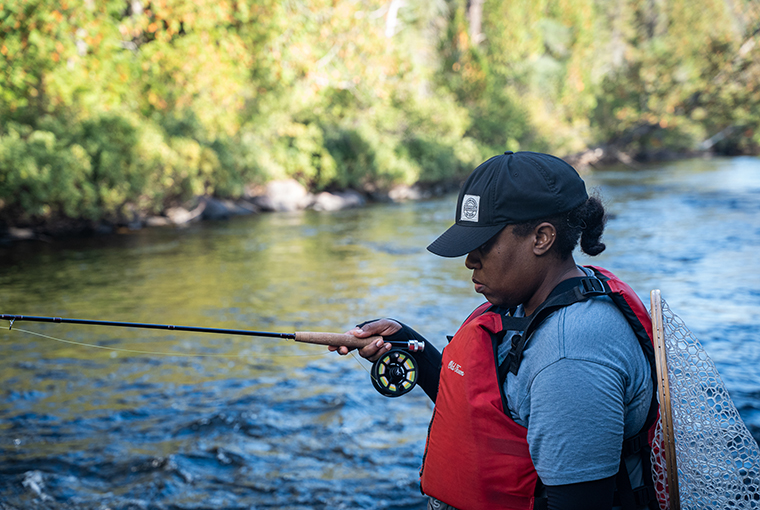
Spaces and spices
OOD: What is your favourite Ontario-caught fish to fish for, to eat? How do you like to prepare it?
DD: I most often practise catch-and-release fishing. However, on the rare occasion that a fish lands on my line that doesn’t have a fighting chance, I’ll make a mean bass fish fry. The secret is always in the seasoning. Growing up with my grandma, I have no concept of what an actual recipe is. It’s usually a pinch of this, a dash of that, and a whole lotta love.
OOD: How would you compare the natural beauty of Jamaica to Ontario’s? What similarities are there?
DD: I think both places are so under-appreciated for their abundance of natural spaces, and the ways in which they can inspire a passion for adventure. I migrated to Canada and arrived in March, back when our winters lasted until June. I learned to appreciate how everything came to life when the last bit of snow melted, streams started moving, and I was able to see things anew. Even in its wildest, most unmanicured form, nature in Canada still had a somewhat manicured look to it. The way pine trees showed up against the landscape was still very much a big contrast to the ways trees and shrubs showed up in Jamaica.
Amplifying representation in the outdoors
OOD: How does it feel to found and lead a community dedicated to advocacy?
DD: I often tell myself that I don’t want to always be advocating for a place in the outdoors for myself or the community of people I serve. I can’t take joy from having to advocate constantly for people to see our humanity. My hope is that, through the conversations we lead in the places we show up, our stories will become part of the norm.
OOD: Your tagline is: ‘Changing the Narrative Through Adventure;’ can you elaborate?
DD: We are working to create opportunities for individuals from the (BIPOC) community to see themselves belonging in spaces that scream adventure, fun, and by extension, environmental protection. We also speak to the conservation conversation, and the need for the intentional inclusion of voices that represent Canada’s growing demographic, (so they may) see themselves as valuable in (that) conversation. You’ll often hear me say “Know it. Love it. Protect it,” and that is really what we are hoping to achieve by introducing or reintroducing nature and its protection in a way that resonates, (while) helping to change the narrative.
OOD: Are your members mostly urban or rural? Is transportation challenging?
DD: Most of the folks who show up to BGOW events are from the Greater Toronto Area. Transportation is a great, if not the main barrier to accessing places not located within city limits. We often resort to carpooling or partnering with our event sponsors to ensure transportation is available to folks joining us from other areas. That is why we are working to create a transportation solution that would serve multiple community-based organizations in the GTA, allowing for greater access and connection to other nature spaces outside the city not served by public transportation.
Inspiring growth
OOD: How has the pandemic shaped the BGOW organization?
DD: While we did make space for those new to experiencing the absolute joy of BGOW, word of mouth from those who were part of our story pre-pandemic, have been the catalyst behind our growth. When the world opened, we still saw events selling out, with waitlist capacity. Folks continue to find a way into nature through our community.
OOD: How can folks support BGOW as allies?
DD: I have always held a strong dislike, feeling of discomfort with the word ally. Verbal declarations of allyship alone won’t make the change. Long-term commitments with end goals are needed. Relating specifically to BGOW, we are currently working on a transportation solution to get more folks of colour into the outdoors; we want folks who can see value in us being there to donate to our GoFundMe.
The future of creating safe spaces
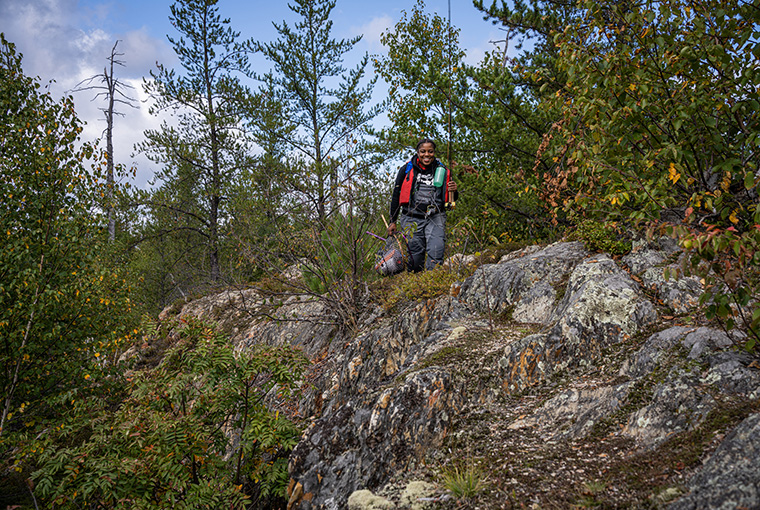
OOD: What do you see for the future of BGOW?
DD: Growth, significant change in how our stories show up in media, and how our stories are told and supported when we are not in the room. I see us having our own means of transportation to ease that major barrier for individuals looking to connect with nature outside of the city landscape. We are working to develop more opportunities for education and expanding these opportunities for learning into other places under the BGOW banner.
OOD: Can you speak to the joy of creating a space safe for BIPOC women to enjoy the outdoors?
DD: Safety for us speaks to more than just the physical. We speak a lot about also ensuring psychological safety when we invite people into the spaces we occupy. We work with our event partners, beforehand, to ensure they are aware of what safety looks and feels like for a community of folks whose presence in the outdoors is often challenged in various ways. Having folks walk away from the events mentioning how safe and supported they felt inspires us to continue creating in this way.
So Fly stories
One of BGOW’s recurring event partners is the So Fly Crew: a fly fishing podcast dedicated to connecting Ontario fly fishing anglers. We connected with Aldo Pescatore-Tardioli of So Fly for his take on urban fishing and the importance of community in the outdoors.
OOD: Is it harder or easier for urban anglers to get outside? What are some of the challenges?
APT/SF: Obviously this depends on where you live, access to water. In Toronto, where the So Fly Crew call home, it’s relatively easy. You can fish for pike, bass, and carp right in town for most of the year. Four rivers run right through town, from west to east: The Credit, Humber, Don, and Rouge, and in the fall, they all get a run of migratory salmon and steelhead you can fish for. On the upside there is access, but on the downside, there are pressures from a high concentration of anglers and of course, sprawl, and pollution.
It’s a larger conversation, but if the city prioritized fish health and angler education, I believe Toronto would be a spectacular fishing destination. Certainly, there’s something very cool about travelling to the middle of nowhere to fish for steelhead, but I think there’s something equally as spectacular about catching them in a city of three million people.
It would speak to our commitment to the environment.
Community in the wilderness
OOD: How important is it to have a sense of community when engaging with the wilderness?
APT: For us, it’s everything. We started So Fly to tell the stories of, celebrate, and connect the Ontario Fly Fishing community. I, personally, am privileged to say that I’ve been fishing my entire life so it’s less about catching fish for me now and more about passing on what I know to people.
I love getting new anglers into the sport and, specifically with fly fishing, breaking through the more dated model of it being only for the wealthy and only as a method to catch trout.
We have an amazing community here in Ontario that is growing but since the province is so vast, we can sometimes feel disconnected from one another. So, finding ways to bring those people together, even online, is wicked. We can share ideas and help effect change for not only conservation projects, but also when it comes to breaking barriers to access for anglers who, typically, wouldn’t be able to, or not feel welcome in a space that’s historically white and male dominated.
OOD: If you could host a BGOW/So Fly partnership outside of Ontario, anywhere in the world, where would you go?
APT: Oh, I love this question! Jamaica, without a doubt. I like to think Demiesha and I have become good friends over the past year (insert nervous laugh). She’s originally from Jamaica so getting to explore her home waters with her and BGOW would be amazing.
I’m surprised we’re not there right now!
Below you’ll find a full-length podcast episode as well as a retrospective video recounting one of the So Fly Crew and Demiesha Dennis of Brown Girl Outdoor World’s annual trips to Temagami, Ontario.
Preserving the Algonquin Park fishery
OOD: You’re also a member of the Algonquin Provincial Park Fisheries Advisory Council. Can you tell us a bit about it?
DD: (I’m) grateful for the opportunity to sit amongst the individuals who form this Council, receiving and sharing knowledge. The work this council is doing is impactful. I have learned and contributed so much to the conversations happening around the program. Having the opportunity to speak (about) two topics that really matter to me, Algonquin Park, and fish, has been really enlightening. It has also been a great reminder that your voice matters, and the impact of using it will go far beyond anything in your wildest imagination.
Ontario Federation of Anglers and Hunters’ Fisheries Biologist, Adam Weir, also joins Dennis on the Council.
“Demiesha Dennis is breaking down barriers with Brown Girl Outdoor World. It’s exactly what the outdoor space needs — getting new people with diverse backgrounds,” Weir said.
“Similarly, working groups like the Algonquin Provincial Park Fisheries Advisory Council rely heavily on having an assortment of stakeholders to bring a diversity of perspectives to the table. The OFAH has a seat on every FMZ advisory council in the province and we intend on sharing our knowledge and experience to help shape fisheries management planning for the Park to help ensure its sustainability and ongoing productivity now and into the future.”
Providing a platform
Dennis’ contributions are enriching the hunting, fishing, and outdoors community by providing a platform for representation though education and access. Despite acknowledging some fleeting sense of the self-same imposter syndrome that plagues everyone in the position to amplify their voices on occasion, Dennis is smiling and shaking off self-doubt, while encouraging others to do the same.
“I have since learned that if the table is set and your name is on that place card, you were meant to be there,” she wrote.
If you’d like to learn more about Brown Girl Outdoor World (BGOW), click here


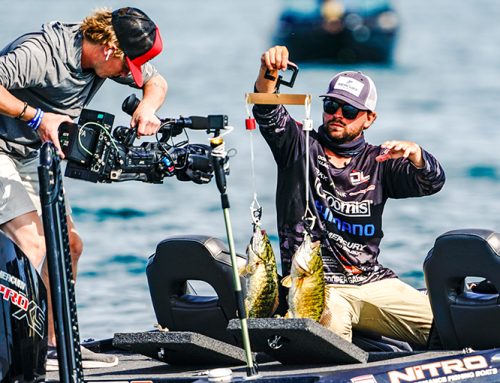
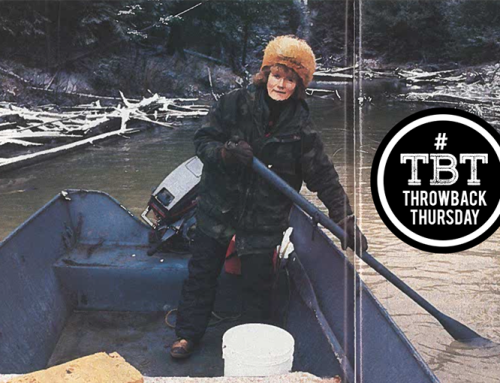
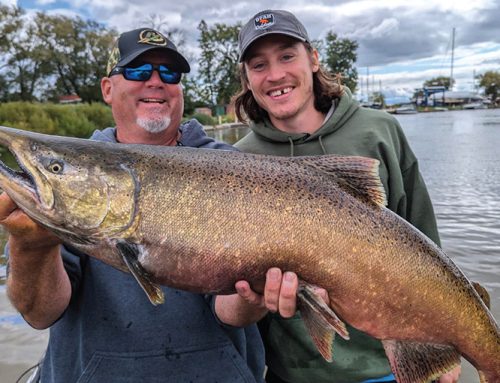
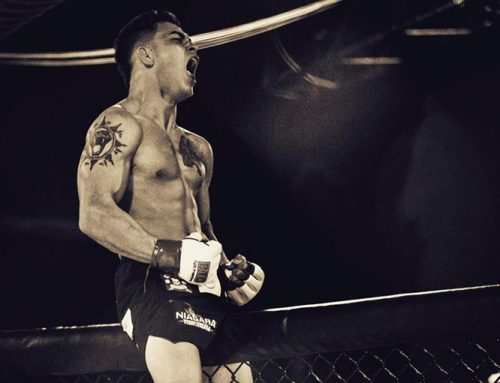
What a great story!! I used to work with Demiesha. What a fantastic thing she’s doing.